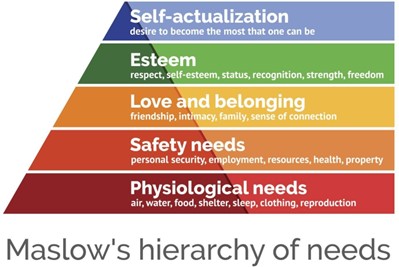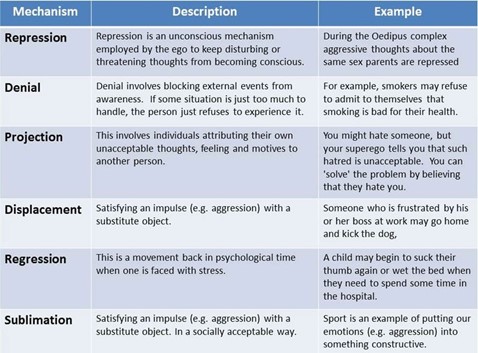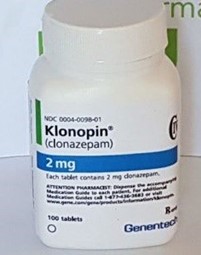A nurse uses Maslow’s hierarchy of needs to plan care for a psychotic patient. Which problem will receive higher priority? The patient who:
Select one:
needs to be taught about medication action and side effects.
refuses to eat or bathe.
reports feelings of alienation from family.
is reluctant to participate in unit social activities.
The Correct Answer is B
According to Maslow’s hierarchy of needs, physiological needs such as food and hygiene are the most basic and fundamental needs that must be met before higher-level needs can be addressed. Therefore, a patient who refuses to eat or bathe would receive higher priority in care planning.

Nursing Test Bank
Naxlex Comprehensive Predictor Exams
Related Questions
Correct Answer is C
Explanation
Rationalization is a defence mechanism in which a person attempts to justify or explain their behavior or actions in a way that makes them seem more acceptable or reasonable. In this case, the client is using rationalization by attributing their alcohol abuse to their job and the need to drink with clients at parties.
Option a. Compensation is a defense mechanism in which a person attempts to make up for a perceived weakness or deficiency by excelling in another area.
Option b. Suppression is a defense mechanism in which a person consciously chooses to avoid thinking about or dealing with unpleasant thoughts or feelings.
Option d. Reaction-formation is a defense mechanism in which a person behaves in a way that is opposite to their true feelings or desires.

Correct Answer is A
Explanation
Clonazepam is a benzodiazepine medication that acts quickly to reduce anxiety and promote relaxation. It is commonly used as a PRN medication for acute anxiety episodes.
Amitriptyline (Elavil) is a tricyclic antidepressant that is not typically used as an as-needed anxiolytic medication due to its slow onset of action and potential for side effects.
Olanzapine (Zyprexa) is an atypical antipsychotic medication that can be used to treat anxiety in certain cases, but it is not typically used as a PRN medication for acute anxiety episodes.
Escitalopram (Lexapro) is a selective serotonin reuptake inhibitor (SSRI) antidepressant that is not typically used as an as-needed anxiolytic medication due to its slow onset of action. It is usually taken on a daily basis to provide ongoing anxiety relief.

Whether you are a student looking to ace your exams or a practicing nurse seeking to enhance your expertise , our nursing education contents will empower you with the confidence and competence to make a difference in the lives of patients and become a respected leader in the healthcare field.
Visit Naxlex, invest in your future and unlock endless possibilities with our unparalleled nursing education contents today
Report Wrong Answer on the Current Question
Do you disagree with the answer? If yes, what is your expected answer? Explain.
Kindly be descriptive with the issue you are facing.
